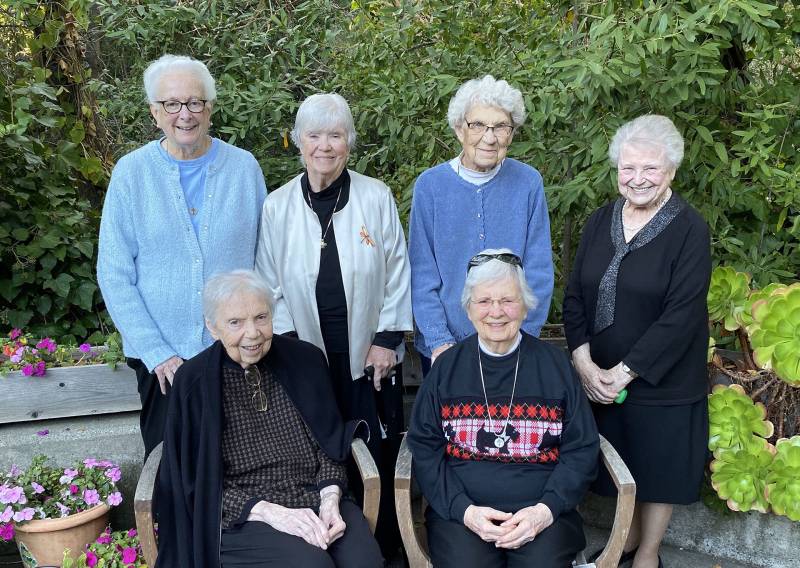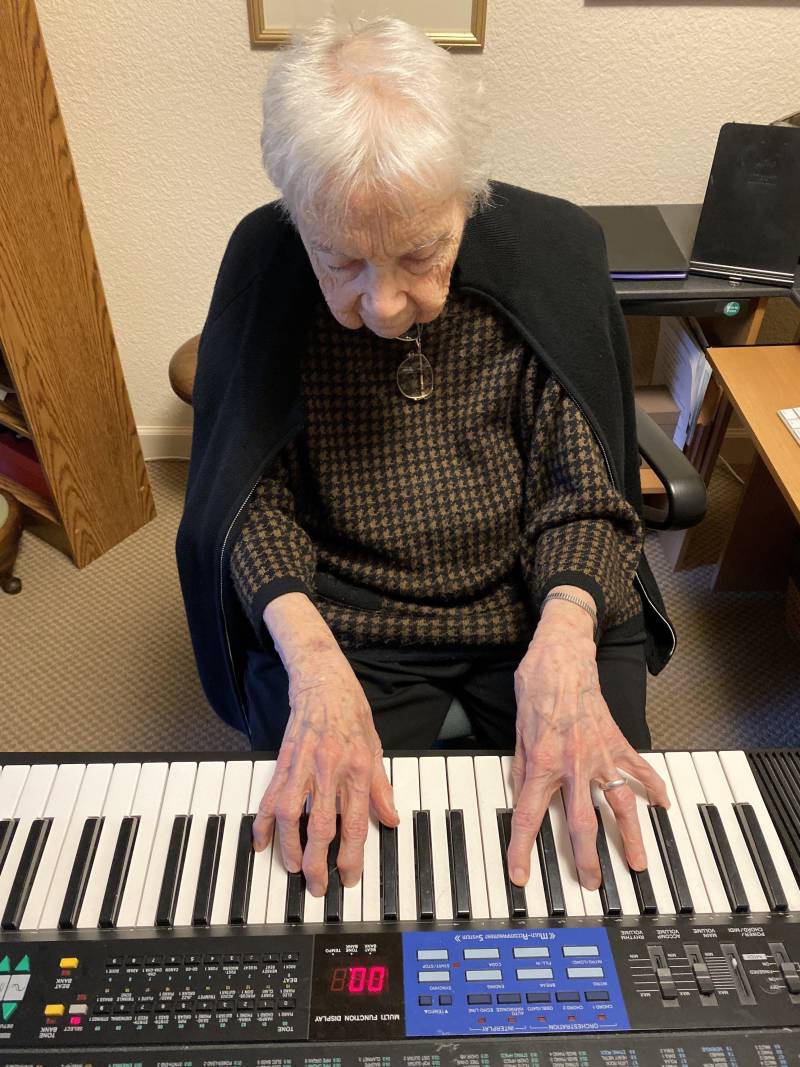By nearly every measure, Mary Edith Hurley is a shining example of elderhood. At age 100, she’s in good health. She scoots around her Burlingame assisted living facility with her walker, cracking jokes and greeting friends. She collects memorabilia that celebrates her Irish heritage, and likes to show it off to visitors, brandishing a “Tis a Blessing to be Irish” throw pillow with a giggle and a twinkle in her eye.
In fact, Hurley is part of a group of people held up by gerontologists as kind of heroes of “successful aging”: American Catholic nuns.
“They not only live much longer than their lay peers, they also are physiologically healthier and psychologically healthier — happier — at the end of life,” says Anna Corwin, an anthropologist at St. Mary’s College in Moraga, California. For the past decade, Corwin has been studying aging nuns, and she discovered a paradox: They’re held up as models of successful aging, but, in fact, Anna says, “They don’t see aging as successful or unsuccessful — they just see it as just natural.”
So, what are the nuns doing differently? I spent some time last fall — before coronavirus made such reporting dangerous — in the convent of the Sisters of Mercy in Burlingame. The convent is home to so many aging nuns that it has an on-site assisted living facility, called Marion Oaks, which is where Hurley lives. What I found was that the nuns turn many common assumptions we have about getting older upside down.
Interdependence Is Celebrated
On a Sunday early evening, about a dozen nuns get together in an upstairs room full of couches in the Mercy Center convent. After an informal prayer service — some hymn-singing and bible readings — they have a social gathering that strongly resembles a cocktail hour. A table in the corner is stocked with a cheese platter and other snacks, along with wine, beer ... and whiskey. Several sisters are pleased to see single malt scotch among the offerings. “This is a Sunday ritual,” one of them tells me. “Prayer. Social. Dinner.”


